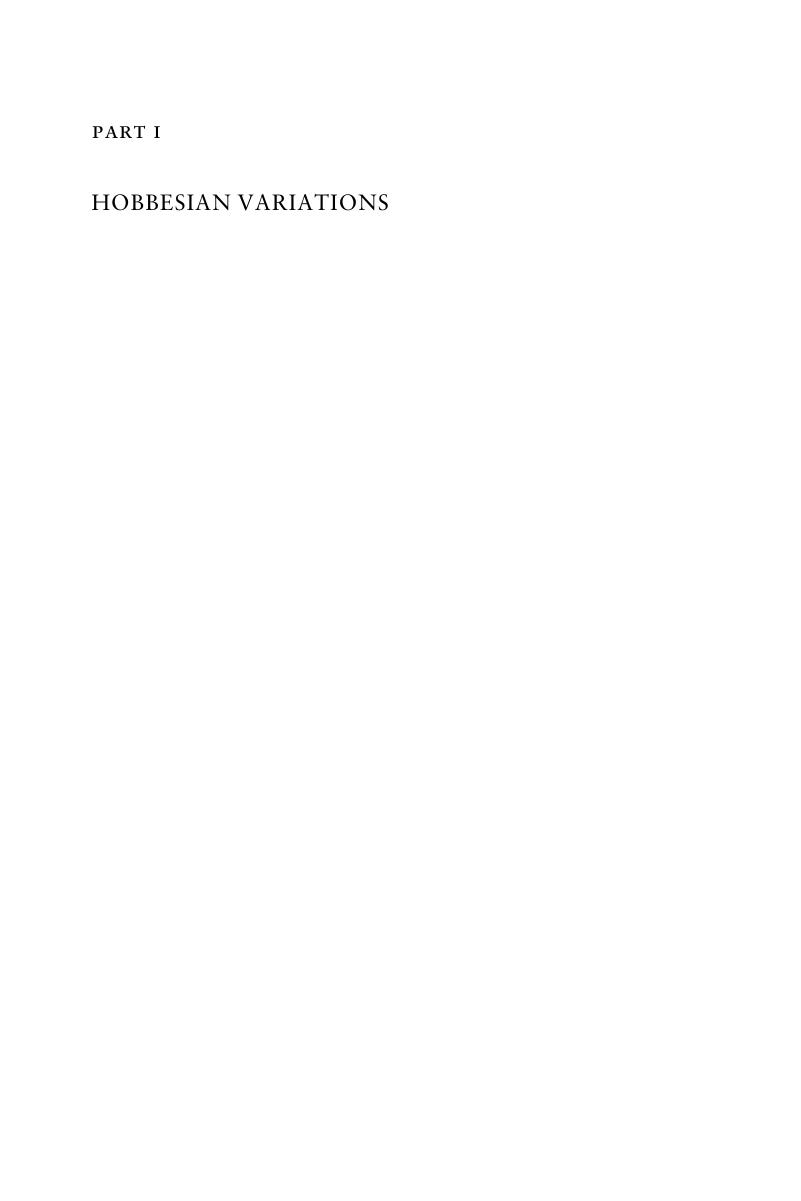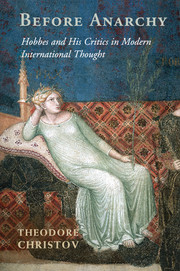Part I - Hobbesian Variations
Published online by Cambridge University Press: 05 January 2016
Summary

Information
- Type
- Chapter
- Information
- Before AnarchyHobbes and his Critics in Modern International Thought, pp. 1 - 140Publisher: Cambridge University PressPrint publication year: 2016
